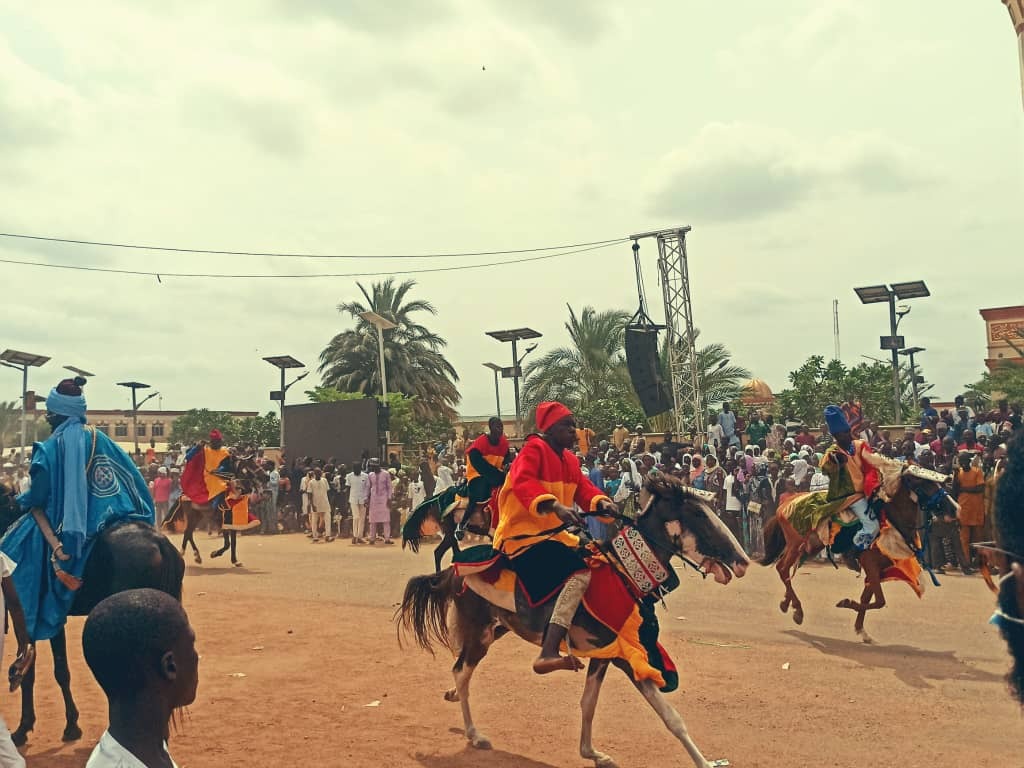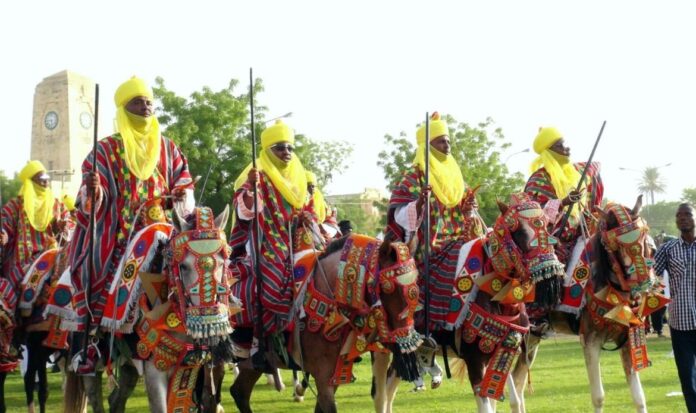The Durbar Festival is a captivating cultural event celebrated in Northern Nigeria, steeped in centuries-old traditions and infused with a spirit of royalty and pride. This grand occasion showcases the vibrant heritage of the Hausa-Fulani people and is one of the most iconic festivals in the region. Let’s explore what makes the Durbar Festival such a significant cultural phenomenon.
Historical Roots of the Durbar Festival
The origins of the Durbar Festival date back to the early 14th century, during the reign of the Sokoto Caliphate and other Northern emirates. Historically, the Durbar was held as a military parade where traditional cavalry would showcase their skills in readiness to defend the Emirate. The festival also marked key events like the coronation of Emirs and military victories, reinforcing the political and spiritual power of the northern kingdoms.
With time, Durbar transitioned from a military drill into a grand cultural event held to honor dignitaries, celebrate Muslim festivals, and mark important national events. Today, the festival is primarily associated with Eid al-Fitr and Eid al-Adha celebrations in major cities such as Kano, Zaria, and Katsina.
The Procession: A Spectacle of Royalty and Prestige
The Durbar Festival is renowned for its majestic horsemen, rich cultural attire, and impressive displays of traditional weaponry. The highlight of the event is the grand procession led by the Emir and his entourage of horsemen. Adorned in elaborate robes and turbans, these horsemen gallop in synchronized formations, often waving swords and spears in dramatic displays of bravery.
At the center of the festival is the Emir, a symbol of both spiritual and political leadership. The Emir’s presence during the procession is a reminder of the historical authority that these northern leaders once held. In some ways, the Durbar preserves the enduring legacy of pre-colonial and early Islamic rule in Nigeria.
Cultural Symbolism: Horses and Attire
The role of horses in the Durbar Festival is pivotal. Horses are highly revered in Northern Nigeria, symbolizing strength, wealth, and prestige. Each horse is adorned with ornate bridles, saddles, and drapes in bright, beautiful colors that reflect the Emirate’s royal heritage. Horsemen and participants dress in intricately embroidered gowns known as babban riga or kaftan, often accompanied by luxurious headgear, completing the visual splendor.
This parade is not just about pomp and ceremony; it reflects a deep cultural connection to history, family, and honor. Participation in the Durbar Festival is often a mark of pride for the noble families and horsemen involved.

Durbar Festival as a Community Celebration
While the Durbar Festival is rooted in royal traditions, it is also a vibrant community event that draws people from all walks of life. The festival creates an atmosphere of unity, as thousands of residents and visitors alike come to witness the spectacle and pay homage to their leaders.
Aside from the Emir’s procession, the Durbar is accompanied by a series of activities, including traditional music performances, dances, and recitations of praise poetry. These performances further celebrate the rich cultural tapestry of Northern Nigeria.
Durbar in Modern Times: A Tourist Attraction
In contemporary times, the Durbar Festival has evolved into a major tourist attraction. Visitors from across Nigeria and the world are drawn to Northern cities to experience the grandeur and pageantry of this event. The festival serves as a gateway for tourists to learn about the rich history, customs, and religious practices of the Hausa-Fulani people.
The Nigerian government, through its Ministry of Culture and Tourism, has also recognized the economic and cultural value of the Durbar Festival. Efforts to promote the event on a global stage continue to attract international attention, positioning the Durbar as a symbol of Nigerian pride and heritage.
The Durbar Festival remains one of Nigeria’s most culturally significant and visually stunning events. It is a living tradition that reflects the enduring legacy of northern Nigeria’s empires, Islamic faith, and the spirit of unity. For anyone interested in African culture, history, and pageantry, the Durbar Festival offers a remarkable insight into the vibrant life of Northern Nigeria.
From its historical roots as a military parade to its modern-day role as a cultural celebration, the Durbar Festival embodies the spirit and pride of the Hausa-Fulani people. It stands as a testament to the power of tradition, bringing communities together to celebrate their shared heritage and identity.
If you’re ever in Northern Nigeria during Eid festivities, make sure not to miss the Durbar Festival — a truly unforgettable cultural experience!


Venture into the vast galaxy of EVE Online. Find your fleet today. Fight alongside thousands of explorers worldwide. Start playing for free